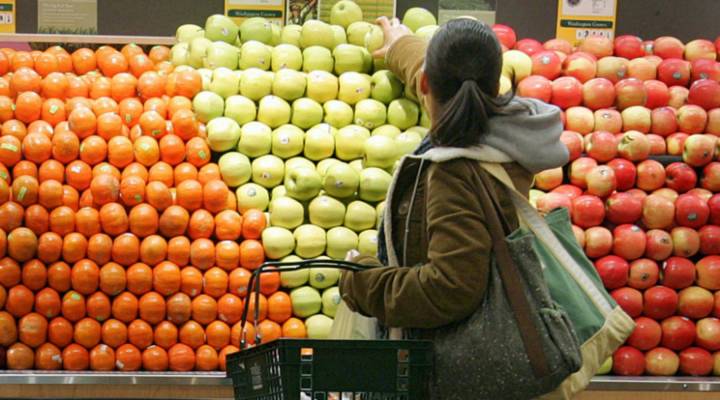
Getting enough food is still a problem for many Americans

A new report from the nation’s largest domestic hunger relief organization, Feeding America, points to a persistent problem of food insecurity: the socio-economic condition where people have limited or uncertain access to adequate food.
The report said food insecurity rates across counties remained high at 14.7 percent in 2014, the most recent year its data captured.
James Ziliak, director of the Center for Poverty Research at the University of Kentucky, did not contribute to the report, but said he’s not surprised by its findings. He said food insecurity remains elevated in part because of the sluggish nature of the economic recovery, which has been especially hard for low-income earners.
“They were slow to regain full-time employment, and many households still have not,” he said. “And the jobs they were able to get after the Great Recession were oftentimes below what they made before the recession.”
Feeding America’s report said 90 percent of the counties with the highest food insecurity rates in 2014 were in the South, where average incomes are lower, according to Ziliak.
“Another factor is the fraction of the population that lives in rural communities is higher, and rural Americans are at greater risk of food insecurity,” he said.
Feeding America’s chief executive, Diana Aviv, said there are many households in the country where families may not fall below the federal poverty level but are still struggling.
“The public at large thinks that this problem has gone away,” she said.
The report counts 167 counties where the majority of food insecure children don’t qualify for federal nutrition programs.
Aviv said many families in that situation lean heavily on food banks and soup kitchens in her organization’s network.
There’s a lot happening in the world. Through it all, Marketplace is here for you.
You rely on Marketplace to break down the world’s events and tell you how it affects you in a fact-based, approachable way. We rely on your financial support to keep making that possible.
Your donation today powers the independent journalism that you rely on. For just $5/month, you can help sustain Marketplace so we can keep reporting on the things that matter to you.












